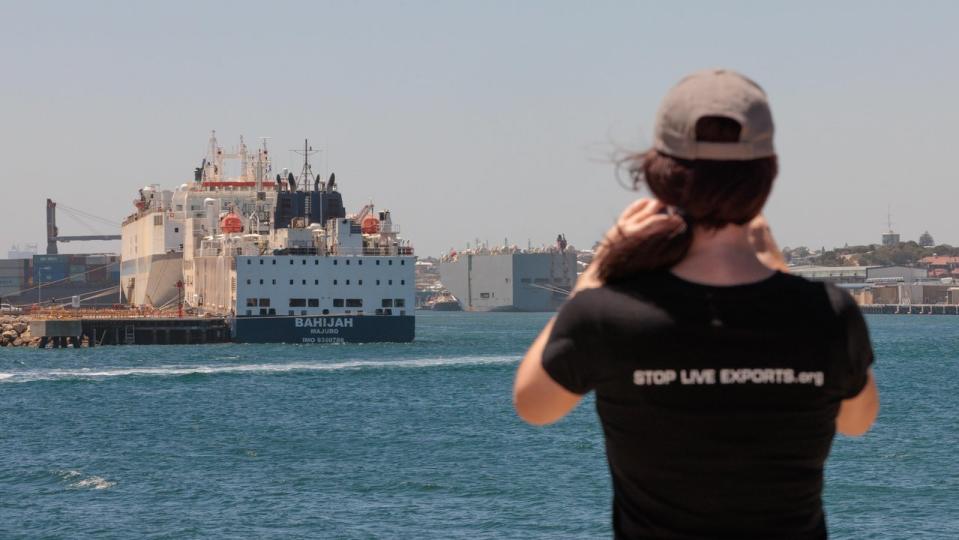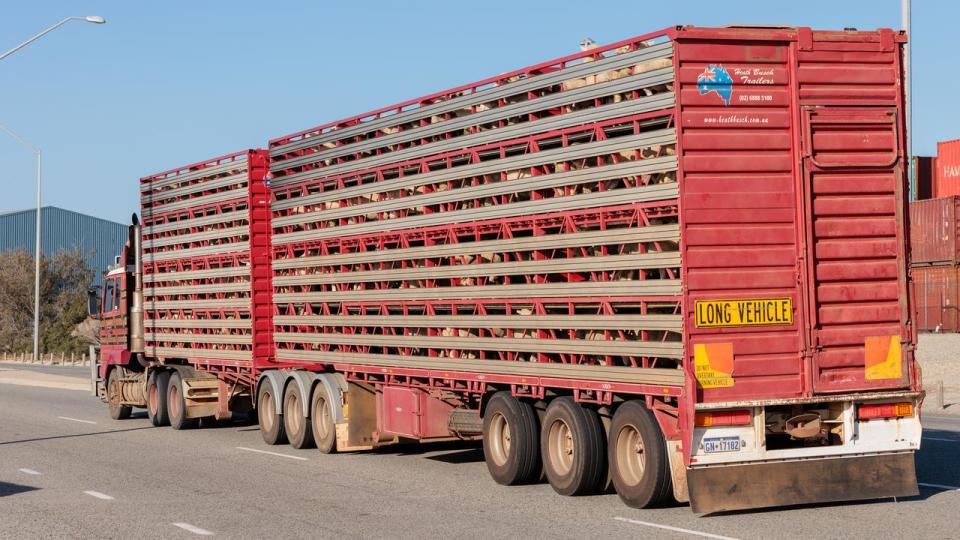'Concerning precedent' but animal welfare risk too high
Legislation to end live sheep exports by 2028 sets a precedent for other export markets like cattle, an inquiry has heard, while experts warn the welfare risks remain too high.
The first of two public hearings into the Albanese government's decision to end live sheep exports heard from industry groups who are critical of the phase-out, as well as animal activists who support the ban.
The ban which was prompted by animal welfare concerns is due to come into force in May 2028, but would still allow for live sheep to be exported by air and cattle to be exported by sea.

"All agricultural industries are at risk if political and activist agendas are allowed to undermine their future," Alastair James from the Red Meat Advisory Council told the inquiry.
Jo Hall from Wool Producers Australia called for the decision to be reversed.
"The government's decision is simply not based on science or evidence, given the live sheep export industry has shown demonstrable improvements across their sector in the past five years," Ms Hall said.
But Jed Goodfellow from the Australian alliance for animals who supports the phase-out said the industry had not learnt or changed.
"All of the science is showing that there are very, very negative animal welfare outcomes in a range of different areas," Dr Goodfellow said.
While former live export veterinarian Lynn Simpson rejected a description offered by farmers of Australia's live sheep export trade as "gold standard."
"To starve to death on a floating feedlot, is kind of a bit ridiculous for a gold standard practice," she told the committee.
The former export vet who conceded she hadn't been on a ship since 2011, said no regulation could fix all the animal welfare issues on board.
"Risks ... like starvation, being exposed to continuous lighting, loud noises, the motion of the ship," Dr Simpson said.
Earlier the inquiry heard mortality rates on live sheep export ships had dropped significantly since 2017, when more than 2000 sheep died from heat stress while on a ship from Australia to the Middle East.
Exporters told the inquiry that voyage mortality rates for sheep were about 80 per cent lower than a decade ago.
But while the welfare conditions for live sheep exports had improved, the number of animals experiencing health issues is still unacceptable according to the peak association for veterinarians.
There had been a big improvement in conditions in recent years, but too many animals were still suffering, said Melanie Latter from the Australian Veterinary Association.
"We're still seeing unacceptable rates of heat stress, gastrointestinal diseases ... there are welfare issues that remain, and they remain of concern," Dr Latter told the inquiry on Wednesday.

The inquiry is examining the provisions of the bill to ban live sheep exports by 2028, especially in Western Australia where the trade is almost entirely based.
Bonnie Skinner from Sheep Producer's Australia criticised the timing of the phase-out and described the $107 million transition package as "inadequate."
Cattle Australia and the red meat advisory council also condemned the policy and expressed concerns over what it meant for the cattle industry despite repeated assurances by the Albanese government that the policy won't be extended to cattle.
"This approach risks shutting down industries based on emotion or ideology, setting a dangerous precedent and creating sovereign risk for livestock and other agricultural sectors," Chris Parker from Cattle Australia told the inquiry.

Australian Livestock Exporters' Council chair David Galvin also directed his anger at the Albanese government for pushing ahead.
"If this ban is such a good idea, why has it been rejected from every agricultural group in Australia?" Mr Galvin asked the inquiry.
"We expect this hearing to be a complete waste of time, and the recommendation to pass legislation from the committee is a fait accompli."
The inquiry is to move to WA on Friday to continue to hear from industry stakeholders.


